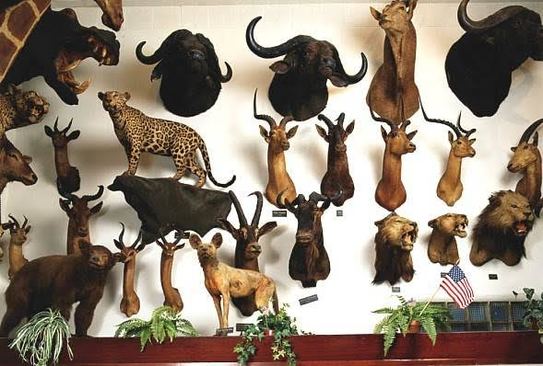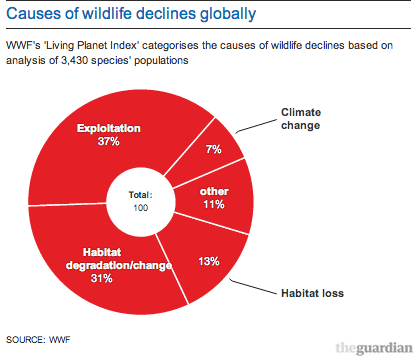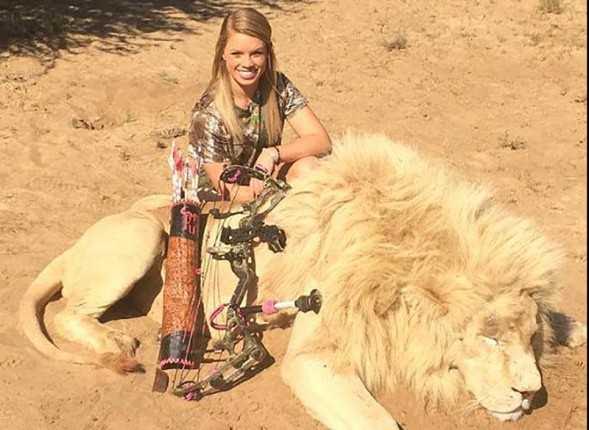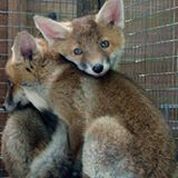 A recent report claims that in the last forty years the number of wild animals on planet earth has halved. It seems humans are spreading like viruses across the globe slaughtering everything in their path. Whole populations of non-humans have been wiped out and their habitats destroyed for food, fun and to make way for money making enterprise. The eyes of the world have recently turned on trophy hunting after the cruel and unnecessary death of Cecil the lion killed by an American dentist for sport. Millions of decent people are outraged at the senseless slaughter of African wildlife yet there are still those who still attempt to defend this vile practice by claiming it’s an act of conservation. Even members of the British royal family go trophy hunting. Those who could set such a great example prefer instead to just pretend to care about wildlife, whilst indulging themselves in their bloodthirsty hobbies of shooting and hunting. Claims that canned hunting helps the local poor by paying millions of dollars into the economy is rubbish. Most of the money paid by the super-rich to indulge a bloodlust goes straight into the pockets of the middlemen, large companies and corrupt government officials. A dead lion is worth much more than a live one to many officials on the take. Two hundred million dollars a year and Africa has nothing to show for it apart from dwindling animal numbers and much animal suffering. It’s a frightening thought that greed and a desire to shoot at living targets may see some of earth’s iconic species disappear for ever in our own lifetime. Another pathetic argument put about by hunters the world over, no matter what the species they want to kill, is that hunting helps wild populations. Unfortunately, this argument doesn’t hold water. No one wants a mangy looking old lion head on his wall. Hunters take animals in their prime for their trophies, leaving the weak or the sick to take care of the pride. The gene pool of an alpha animal is destroyed and the pride is left open to attack by wandering males who may kill a whole generation of cubs. Similarly, the oldest and most experienced elephants are killed because they have the biggest tusks, leaving the younger less experienced to look after the herd with little protection or guidance. Governments collude by setting up ‘legal’ quotas and the hunters try to invoke moral arguments because they say it’s within the law. But not everything that is legal is wholesome, and any law, whether good or bad, depends on the humanity and the moral compass of the law makers at the time. Estimates of the lion population is the wild are between 20 to 35 thousand animals, not counting poaching and other deaths, hunters are legally allowed to kill around 600 hundred a year. That is an unsustainable annual population loss of approximately 3 percent. People who simply like killing will always find an alternative excuse. Tell them the wild populations are in danger of vanishing forever and they come up with canned hunting. A sport even more disgusting than killing in the wild. Bred in captivity, hand reared to trust humans, exploited by tourists as fluffy cubs, then sold on to hunting concerns when then are fully grown, to be shot like sitting ducks on a pond. Some argue that breeding lions in this way can be used to repopulate the wild, but these animals are ill equipped to deal with life in the bush. Most are inbred with a poor gene pool and releasing animals this way into established territories can lead to fighting and unstable prides. Local people with livestock and crops to protect often kill those animals who aren’t afraid of man and who will wander into human areas in search of food or simply because they are used to being around people. Change comes slowly, and there are always those who will exploit all living things to make money. Fortunately, some African countries are coming to realise that shooting big game with a camera may turn out to be more lucrative. In Botswana, the government banned almost all trophy hunting at the beginning of 2014. Compared to the 1.8 percent of revenue from killing animals, Africa is coming to realise that 98 percent of those who come to visit, come to see the wildlife. Eco tourism provides jobs for guides and spin off industries like holiday accommodation etc.. Those who come with cameras stay for longer and many come back with friends. In the first year of Botswana’s ban, eco-tourism brought in $344 million dollars. Change is slow, but it is happening. Let us hope that the day of the backward hunter, who likes to use living flesh as target practice, is coming to an end before we lose any more of our world’s precious animals. [For now people such as this "Africa Safari Hunting Consultants" still make money out of big game hunting] Related reading: Canned Hunting, Cowards Killing Captives Lion trophy hunting Can the Can
1 Comment
|
Animal mattersCountry lover, amateur naturalist and fox lover fighting to preserve the ban on hunting Archives
September 2016
Categories
All
|



